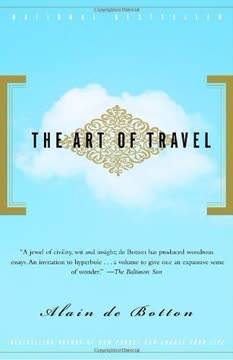重点摘要
1. 苏格拉底:智力独立的化身
“如果我们无法保持这样的镇定,如果我们在听到一些关于我们性格或成就的严厉话语后就容易泪流满面,这可能是因为他人的认可是我们相信自己正确的一个重要部分。”
质疑常识。 苏格拉底体现了挑战社会规范和质疑深信不疑的勇气。他展示了真正的智慧来自于认识到自己的无知,并不断审视我们的假设。
苏格拉底方法。 这种方法包括:
- 确认一个被认为是常识的陈述
- 想象它可能是错误的,并寻找例外情况
- 精炼初始陈述以考虑例外情况
- 重复这一过程,直到得出一个无法被推翻的陈述
通过运用这种方法,我们可以对复杂问题形成更细致和准确的理解,培养智力独立和批判性思维能力。
2. 伊壁鸠鲁:通过简朴重新定义幸福
“不满足于少量的人,什么也无法满足。”
幸福的要素。 伊壁鸠鲁认为真正的幸福源于:
- 友谊
- 自由
- 思考(沉思)
他认为这些元素比物质财富或奢侈更为重要。
挑战消费文化。 伊壁鸠鲁的哲学鼓励我们:
- 区分自然的、必要的欲望和人为的、不必要的欲望
- 专注于满足基本需求,而不是追逐无尽的欲望
- 在简单的快乐和有意义的关系中找到喜悦
通过采用这种观点,我们可以摆脱与物质主义相关的焦虑和不满,过上更平和和满足的生活。
3. 塞内卡:以斯多葛智慧面对逆境
“我们之所以痛苦,是因为我们无法自发地掌握满足的要素。”
为不幸做准备。 塞内卡提倡:
- 练习负面想象(预先思考逆境)
- 通过理性思维培养情感韧性
- 接受我们无法控制的事情
将痛苦转化为智慧。 斯多葛的方法包括:
- 认识到外部事件是中性的;我们的判断才会造成痛苦
- 用理性将挑战重新定义为成长的机会
- 在面对逆境时培养勇气、公正和自制等美德
通过采用这些实践,我们可以培养更大的情感稳定性,并在生活中最困难的时刻找到意义。
4. 蒙田:庆祝不完美的人类状况
“我们最粗鄙的痛苦是鄙视我们的存在。”
接受我们的人性。 蒙田鼓励我们:
- 接受我们的身体功能和不完美
- 认识到人类习俗和信仰的多样性
- 质疑社会规范和偏见
自我审视的价值。 蒙田的《随笔》展示了:
- 内省和诚实自我反思的重要性
- 个人经验作为智慧来源的丰富性
- 写作作为自我发现和理解的工具的力量
通过遵循蒙田的榜样,我们可以发展更大的自我接受和对人类经验的更细致理解。
5. 叔本华:理解爱的生物学驱动力
“它决定的不仅仅是下一代的组成……而是未来人类种族的存在和特殊构成。”
爱作为生物驱动力。 叔本华认为:
- 浪漫吸引力是由无意识的生殖意志驱动的
- 我们被能够补充我们基因缺陷的伴侣所吸引
- 爱的强度与其对物种的重要性成正比
对关系的影响。 这种观点表明:
- 个人幸福与生物学驱动力之间的潜在冲突
- 对长期伴侣关系的现实期望的需要
- 理解我们在择偶中的无意识动机的价值
虽然可能令人沮丧,但叔本华的理论可以帮助我们以更大的自我意识和同情心对待关系。
6. 尼采:痛苦对个人成长的必要性
“如果快乐和痛苦如此紧密相连,以至于想要尽可能多地拥有其中一个,就必须尽可能多地拥有另一个?”
接受生活的挑战。 尼采提倡:
- 将困难视为成长和自我实现的机会
- 拒绝自满和追求舒适
- 通过逆境培养韧性和力量
“爱命运”概念。 这包括:
- 接受生活的所有方面,包括痛苦
- 在克服障碍中找到意义和目的
- 将痛苦转化为个人成长和创造力
通过采用尼采的观点,我们可以培养更大的韧性,并在面对生活不可避免的挑战时找到满足感。
7. 哲学的慰藉:应对生活挑战的智慧
“对于那些我关心的人类,我希望他们经历痛苦、孤独、疾病、虐待、侮辱——我希望他们不要对深刻的自我蔑视、自我怀疑的折磨、失败者的悲惨感到陌生。”
哲学作为实用智慧。 讨论的哲学家提供了:
- 应对生活困难的工具
- 挑战传统思维的观点
- 个人成长和自我实现的灵感
应用哲学见解。 我们可以从中受益:
- 质疑社会规范和我们自己的假设(苏格拉底)
- 简化我们的生活并专注于重要的关系(伊壁鸠鲁)
- 通过理性培养情感韧性(塞内卡)
- 接受我们不完美的人性(蒙田)
- 理解爱的生物基础(叔本华)
- 在生活的挑战中找到意义(尼采)
通过与这些哲学思想的互动,我们可以对生活的挑战形成更细致的理解,并在日常生活中找到更大的平和、智慧和满足。
最后更新日期:
FAQ
What's "The Consolations of Philosophy" about?
- Philosophical Guidance: "The Consolations of Philosophy" by Alain de Botton explores how philosophy can provide comfort and guidance in dealing with life's challenges.
- Six Philosophers: The book examines the ideas of six philosophers: Socrates, Epicurus, Seneca, Montaigne, Schopenhauer, and Nietzsche, each offering insights into different aspects of human suffering.
- Practical Application: De Botton illustrates how these philosophical ideas can be applied to modern life, addressing issues like unpopularity, financial struggles, frustration, inadequacy, heartbreak, and difficulties.
- Philosophy as Therapy: The book positions philosophy as a form of therapy, offering practical advice and wisdom to help readers navigate personal and existential challenges.
Why should I read "The Consolations of Philosophy"?
- Accessible Philosophy: Alain de Botton makes complex philosophical ideas accessible and relevant to everyday life, making it a great introduction to philosophy.
- Practical Insights: The book provides practical insights and advice on dealing with common human problems, making it useful for personal growth and self-reflection.
- Engaging Writing: De Botton's engaging writing style combines humor, anecdotes, and historical context, making the book both informative and entertaining.
- Timeless Wisdom: By exploring the thoughts of renowned philosophers, the book offers timeless wisdom that can help readers find comfort and meaning in their lives.
What are the key takeaways of "The Consolations of Philosophy"?
- Socrates on Unpopularity: Socrates teaches the importance of staying true to one's beliefs despite societal disapproval, emphasizing the value of independent thinking.
- Epicurus on Money: Epicurus suggests that true happiness comes from simple pleasures, friendship, and freedom, rather than wealth and luxury.
- Seneca on Frustration: Seneca advises accepting the inevitability of frustration and using reason to manage emotions and expectations.
- Montaigne on Inadequacy: Montaigne encourages embracing human imperfection and finding contentment in the ordinary aspects of life.
How does Alain de Botton use Socrates' philosophy in the book?
- Consolation for Unpopularity: Socrates' philosophy is used to address the fear of unpopularity, teaching the importance of standing by one's convictions.
- Independent Thinking: Socrates exemplifies the value of questioning societal norms and thinking independently, even in the face of opposition.
- Rational Confidence: The book highlights Socrates' rational confidence in his beliefs, encouraging readers to develop their own reasoned convictions.
- Intelligent Skepticism: Socrates' life and death serve as an invitation to practice intelligent skepticism and seek wisdom through philosophy.
What does Epicurus teach about money in "The Consolations of Philosophy"?
- Simple Pleasures: Epicurus teaches that happiness is derived from simple pleasures, such as friendship, freedom, and thought, rather than material wealth.
- Natural Desires: He distinguishes between natural and necessary desires and those that are neither, suggesting that fulfilling basic needs is sufficient for happiness.
- Critique of Luxury: Epicurus critiques the pursuit of luxury, arguing that it does not lead to greater happiness and can distract from more meaningful pursuits.
- Advertising and Desires: The book discusses how modern advertising skews our perception of needs, promoting unnecessary desires that Epicurus would advise against.
How does Seneca's philosophy address frustration?
- Acceptance of Reality: Seneca advises accepting the inevitability of frustration and understanding that it stems from unrealistic expectations.
- Preparation for Adversity: He emphasizes the importance of preparing for adversity and recognizing that suffering is a part of life.
- Rational Management: Seneca encourages using reason to manage emotions and adjust expectations, reducing the impact of frustration.
- Philosophy as a Tool: The book presents Seneca's philosophy as a tool for enduring life's challenges with dignity and equanimity.
What insights does Montaigne offer on inadequacy?
- Embrace Imperfection: Montaigne encourages embracing human imperfection and accepting the limitations of reason and intellect.
- Ordinary Life: He finds value in the ordinary aspects of life, suggesting that wisdom lies in accepting and understanding our everyday experiences.
- Critique of Reason: Montaigne critiques the overemphasis on reason, highlighting the importance of acknowledging our emotional and physical selves.
- Self-Acceptance: The book uses Montaigne's philosophy to promote self-acceptance and the idea that we are adequate in our own unique ways.
How does Schopenhauer's philosophy provide consolation for heartbreak?
- Inevitability of Suffering: Schopenhauer acknowledges the inevitability of suffering in love, viewing it as a natural part of the human condition.
- Will-to-Life: He introduces the concept of the will-to-life, which drives our desires and often leads to romantic suffering.
- Understanding Rejection: Schopenhauer's philosophy helps readers understand rejection as a biological imperative rather than a personal failure.
- Acceptance of Pain: The book encourages accepting the pain of heartbreak as a necessary experience, offering a philosophical perspective on love's challenges.
What role does Nietzsche's philosophy play in "The Consolations of Philosophy"?
- Embrace of Difficulty: Nietzsche's philosophy emphasizes the importance of embracing difficulties as a path to personal growth and fulfillment.
- Critique of Comfort: He critiques the pursuit of comfort and ease, advocating for a life of challenge and striving for greatness.
- Creative Suffering: Nietzsche views suffering as a catalyst for creativity and self-discovery, encouraging readers to find meaning in adversity.
- Philosophical Courage: The book uses Nietzsche's ideas to inspire philosophical courage and the pursuit of a life rich in experiences and challenges.
What are the best quotes from "The Consolations of Philosophy" and what do they mean?
- "We will cease to be so angry once we cease to be so hopeful." This quote from Seneca highlights the connection between expectations and frustration, suggesting that adjusting our hopes can reduce anger.
- "Nothing satisfies the man who is not satisfied with a little." Epicurus emphasizes the sufficiency of simple pleasures and the futility of excessive desires.
- "Upon the highest throne in the world, we are seated, still, upon our arses." Montaigne humorously reminds us of our shared humanity and the importance of humility.
- "The secret for harvesting from existence the greatest fruitfulness and the greatest enjoyment is – to live dangerously!" Nietzsche encourages embracing risk and challenge as a means to achieve fulfillment.
How does Alain de Botton make philosophy accessible in "The Consolations of Philosophy"?
- Engaging Writing Style: De Botton uses an engaging writing style, combining humor, anecdotes, and historical context to make philosophical ideas relatable.
- Practical Examples: The book provides practical examples of how philosophical concepts can be applied to everyday life, making them relevant to modern readers.
- Clear Explanations: Complex philosophical ideas are explained clearly and concisely, making them accessible to those new to philosophy.
- Human Stories: De Botton uses human stories and experiences to illustrate philosophical concepts, helping readers connect with the material on a personal level.
What is the structure of "The Consolations of Philosophy"?
- Six Chapters: The book is divided into six chapters, each focusing on a different philosopher and a specific human challenge.
- Philosopher Profiles: Each chapter provides a profile of the philosopher, their key ideas, and how these ideas can be applied to modern life.
- Thematic Approach: The book takes a thematic approach, addressing issues like unpopularity, money, frustration, inadequacy, heartbreak, and difficulties.
- Philosophical Lessons: Each chapter concludes with philosophical lessons and practical advice, offering readers tools for personal growth and self-reflection.
评论
《哲学的慰藉》获得了褒贬不一的评价。许多人称赞其对哲学的通俗化处理和实用的生活建议。读者们欣赏德波顿将复杂思想变得易于理解,并在著名哲学家的智慧中找到安慰。一些人批评这本书过于简化哲学概念或过于偏向自助导向。总体而言,大多数读者认为这是一本引人入胜的哲学入门书,展示了哲学在日常生活中的相关性,尽管有些人希望书中对主题的处理能更深入和严谨。


















